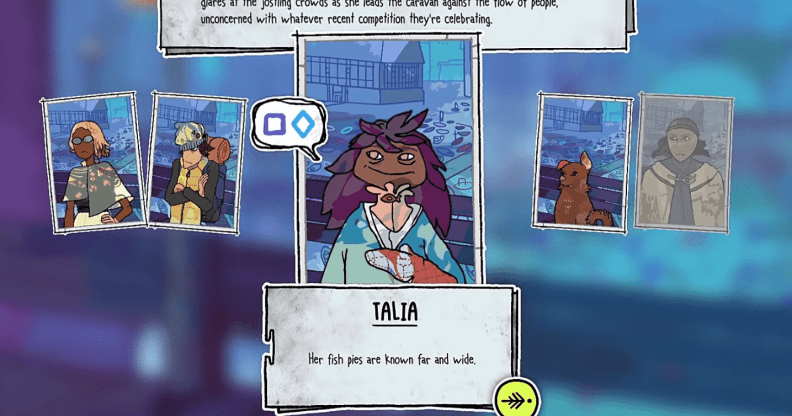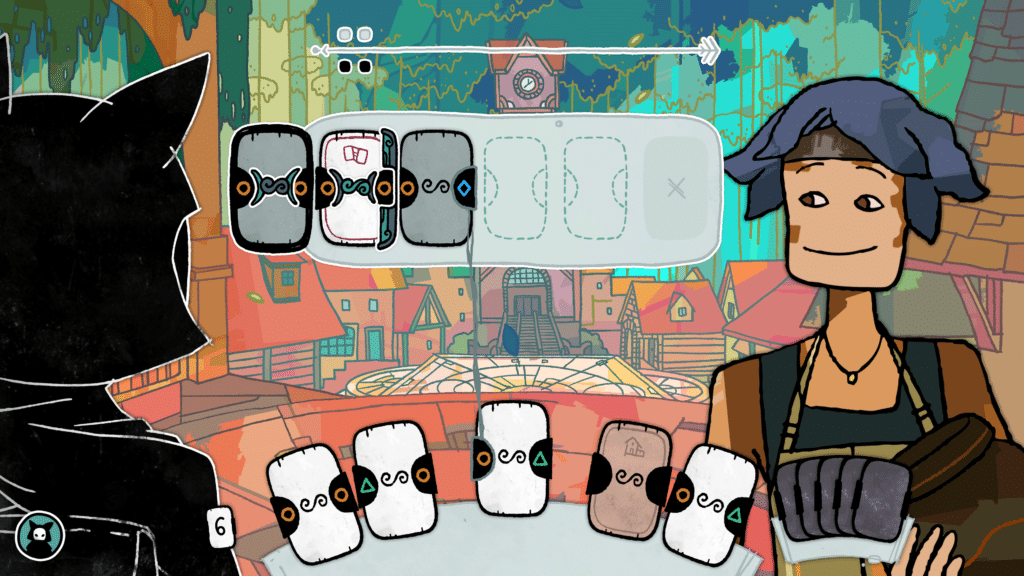Signs of the Sojourner review: a unique narrative card game where communication really is key

The game uses cards as your “voice” to connect with various characters around the world. (Echo Night Games)
Conversations are a huge part of so many video games, but Signs of the Sojourner makes communication the game itself.
First released on PC last year, the game is now available across various consoles, including Nintendo Switch. It’s a game about the power of language, which explores the varying ways we communicate with others and the impact that can have on relationships.
Conversations take the form of a card game, but instead of battling you’re working together with your opposite. Your deck of cards effectively represents your vocabulary and – like dominos – you’ll need to match the symbols on your cards with those of the person you’re speaking with in a consistent run.
Symbols represent different emotions like empathy, logic or creativity, while certain cards come with special effects that cleverly mimic the way we communicate. A “clarify” card, for instance, can be placed anywhere in the run to amend the symbols, while “accommodate” cards will match those of your opposite, and “chatter” cards give you an extra turn.
At the end of each conversation, you must choose one of their cards to gain and one from your current deck to lose. In this way, your vocabulary is constantly evolving to match the people you speak with and the journey you undertake.
So who are you speaking with? Well, you’re tasked with keeping your mother’s bodega well stocked after she passes away at the start of the game and so must travel around towns near and far, speaking with the diverse locals and gaining wares that can be sold back at the shop. The dusty pastel world is a unique post-apocalyptic mix of artists and quirky characters all struggling to survive.
What really makes Signs of the Sojourner interesting is the way your card deck continues to evolve. The further away from home, the more the locals use cards with different symbols on so you’ll need to adapt over your journey in order to communicate. Plus, the further you travel, the more your deck becomes corrupted by “fatigue” cards that instantly fail.
The game takes place over five journeys and at the end of each you must return back home with new cards and new experiences. But will your deck of cards allow you to reconnect with your home or will you and your childhood friends have grown apart? What’s the impact of personal growth?

Signs of the Sojourner. (Echodog Games)
It’s this concept of evolving language that’s at the heart of Signs of the Sojourner and makes for a truly unique experience. What’s more, it’s certainly refreshing to play a post-apocalyptic game without violence.
It does, however, make for a sometimes frustrating game experience. The temptation is the desire to want to “win” every conversation and that’s simply not possible. You can plan your journey around the towns, deciding which people to speak to, which cards to collect and so how you’ll evolve your deck. But there’s no way you can please everyone – and if that’s not a metaphor for life, then what is?
It does mean, though, that you’re locked out of certain conversations. There are so many intriguing little stories about the inhabitants of this world and their fight for survival, but it’s all too easy to miss out on them due to a slip up, a mixed deck of cards, or simply a bad hand.
And while at only a few hours long you can easily play the game again to improve your strategy and find out what you missed, you may just have a few too many fatigue cards in your hand to want to return.
3/5
Signs of the Sojourner is available now on PC and consoles.

